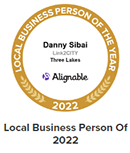The Future of Facebook News Feed and What to Expect
Facebook is indeed a behemoth of a social icon and the center of it all is the news feed with almost 1.5 billion monthly active users. One of the most iconic Facebook feature is the News Feed which provides daily relevant content to its users. How does the News Feed work and what can we expect from it in the future?
The Facebook News Feed is known as a digest of all activities that happens across the site. The news feed premiered on September 5th 2006, to the confusion of most facebook users who immediately hated the concept.
As Facebook prospered it needed to include more types of content and opened its doors to users outside of colleges. As such, the site was required to turn to a more mathematical solution for how popular the news feed of each online user.
This led to the introduction of Edge Rank an algorithm that dictated what stories you see on your news feed. Edge Rank formula took 3 things into consideration: affinity which is your relationship to the poster, weight (how many likes, comments and shares the posts has) and decay (how old the post is)
The Facebook we know today continue to use these 3 elements into consideration along with about a hundred thousand others. As facebook grew and grew, so did their algorithms.
So now for instance, knowing that I liked the Game of Thrones fan page, Facebook might notice that my close friend has liked this Game of Thrones meme on a mutual friend’s wall. Knowing that I’ve liked memes in the past will present them to me in the news feed along with a few ads revolving around Game of Thrones merchandise.
So with this more comprehensive algorithm, Facebook isn’t showing me what thinks I like but rather shows me what it knows I like.
The news feed will continue to grow as Facebook’s data scientists continue to research user behavior on the site. Facebook has recently revealed a “see first” feature which pushes content the user likes to the top of their feeds and soon the like button will be getting an upgrade with new reactions giving users more empathetic options on how to react to a post including love, yay, sad and angry. The news feed algorithm is rapidly evolving and as Facebook explores native video, instant articles and new forms of advertising, you can expect your news feed to show you more accurate content.





























